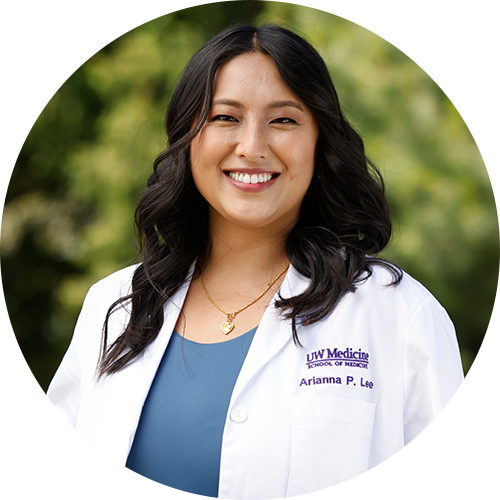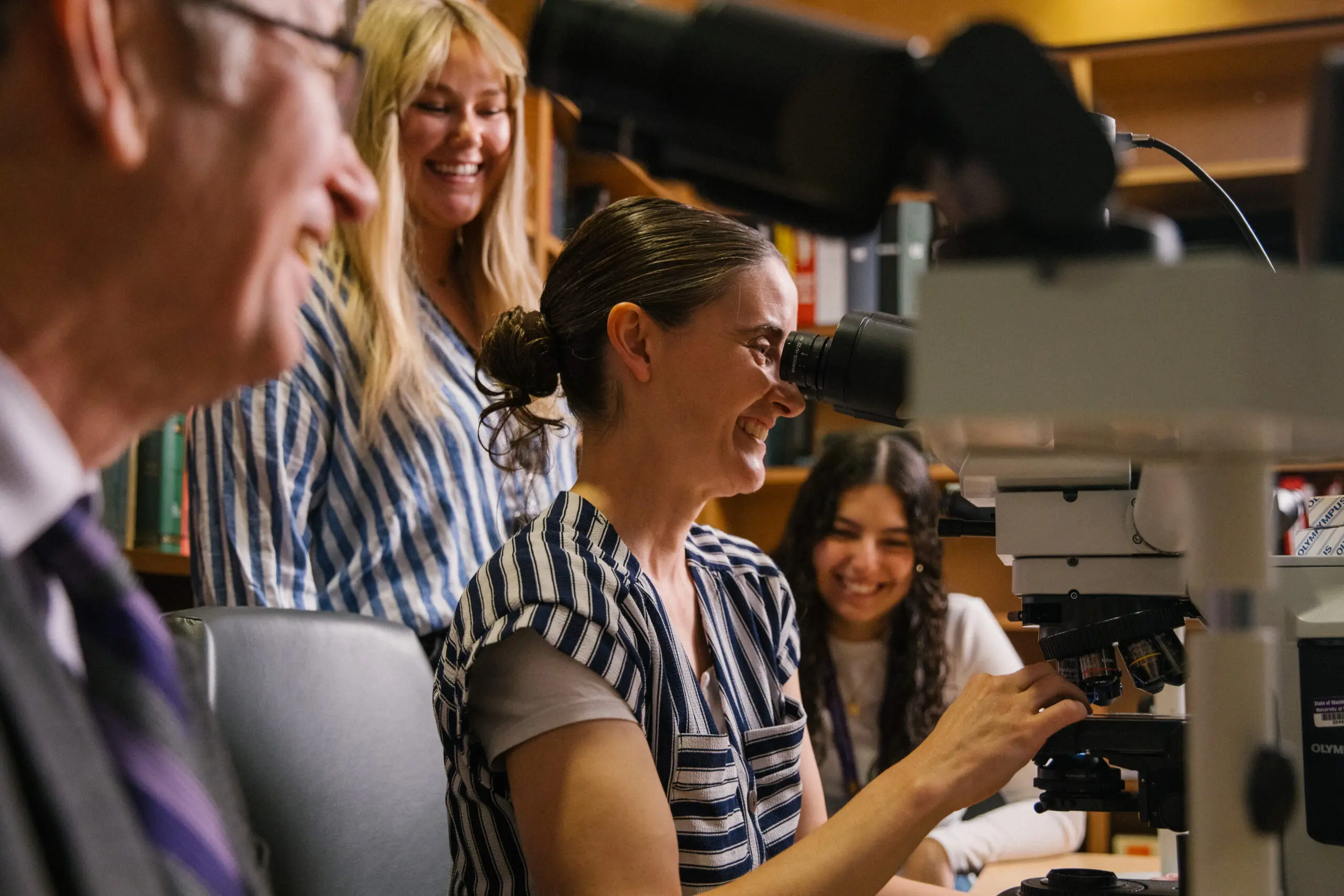
Arianna Lee, MD ’24
I’ve been interested in medicine since I was a kid in St. Paul, Minnesota. I come from a Hmong family, and my grandmother, who was a Hmong shaman, was sick. She thought she was dying, and we didn’t know what was wrong.
It took my aunt realizing that she was using “flower” as a euphemism — it’s taboo in my culture to talk about genitalia — to figure out she had a UTI. I was a kid, wondering how this powerful shaman could think she was going to die from a UTI. The experience opened my eyes to the importance of cultural humility in medicine and inspired me to become a doctor.
I’m now a fourth-year student at UW School of Medicine, getting ready to graduate and start my residency. I’m proud of how far I’ve come because the journey wasn’t easy.
Mentoring students like me
I loved biology in high school. I graduated as valedictorian of my high school class and went to Pomona College as a biology major. I failed my first biology test.
My high school had a very high percentage of first-generation students; it was very clear that students had access to resources I never knew existed their whole lives.
I wanted to go to medical school but was told I wouldn’t make it. It wasn’t until I met Dr. Tony Jimenez, the dean of students of the Claremont Colleges and director of the Chicano/Latino Student Association, that someone unreservedly believed I could achieve my goal of being a physician. His cultural competency and humility gave me the additional guidance I needed to succeed.
UW School of Medicine has a great reputation for providing primary care to underserved communities — that’s why I applied. When I got accepted, I knew it was the place for me.
I wanted to invest in a future of diverse physicians, so I started mentoring students from underserved communities through UW School of Medicine’s Doctor for a Day and U-PREP programs. I wanted to make things easier for those students by providing the mentorship I didn’t always have.
Applying to medical school is a vulnerable process for everyone; it can be hard to find someone you’re comfortable asking for help. When I was applying, I had a hard time finding people I trusted to read my application. Helping students with their applications through U-PREP is one of the most rewarding things I’ve done. Many of the students I worked with got into medical school, and it’s amazing to be a part of their journey in that way.
The importance of asking for help
Throughout medical school, I learned I thrive in high-intensity environments — if I wasn’t in medicine, I would want to be a chef or a mechanic. When I was doing my surgical ICU rotation, I enjoyed how dynamic the care was. The first day of my general surgery rotation — the specialty I’m pursuing in residency — I came home knowing I wanted to be a surgeon. I loved the drive and the intensity.
Then, at the start of the pandemic, my grandfather passed away.
I kept trying to push myself forward, and I just couldn’t. I could not interact with patients if I wasn’t in the right space to treat them. It’s a hard pill to swallow, knowing you’re doing your best and it’s not enough.
Taking a leave of absence to spend time with my family was one of the most difficult decisions I’ve made. It was also one of the best. Leaning on my community and my family, and learning when to ask for help, was so important.
We’re so used to pushing ourselves to keep going. I learned to recognize the early signs of burnout and when it is necessary to step back to provide excellent care to patients. Life still happens when you’re in medical school, and it is crucial to learn how to manage.
An investment in the future of medicine
Going into my general surgery residency at University of California, San Francisco – Fresno, I’m looking forward to building my skills, honing my craft and learning to communicate more effectively with patients.
There’s an experience from medical school I think about often. I was working with a patient who was usually very talkative, but one day he wasn’t saying much. I had a gut feeling something wasn’t right.
When we checked his blood glucose, it was 32 (any level below 70 is abnormal). If I hadn’t said anything, he might not have gotten the treatment he needed. It taught me to trust my gut when caring for patients.
There is a large Hmong community in Fresno, and while I’ve been blessed to serve a diverse population while at the UW School of Medicine, this feels like home. I’m excited to go back to California to practice the skills I’ve learned. I’m going to be serving the community that inspired me to become a doctor. While that’s very exciting, it’s also nerve-wracking! I want to be the very best that I can be for them.
Being involved in my community also means creating opportunities for Hmong students like me to pursue medicine. Although I don’t know what that looks like going forward, I’ve been talking to the Hmong Medical Association about ways to give back.
I want to invest in a future of diverse physicians who can offer culturally humble care. That’s why I got into medicine. I’m so thankful to the people who recognize the financial burden of medical school and contributed to UW School of Medicine scholarships to help alleviate that burden. They invested in my future, and I hope to do the same.
As told to Alex Israel


